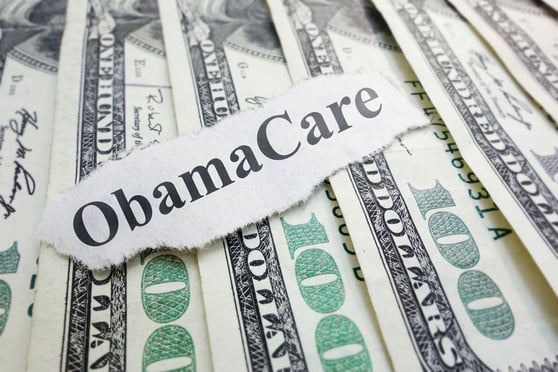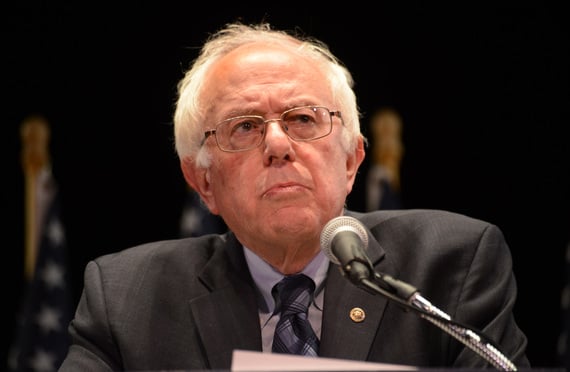 The favorablepolitical landscape can yield real progress against drug prices, iflawmakers can find common ground on commonsense strategies.(Photo:Shutterstock)
The favorablepolitical landscape can yield real progress against drug prices, iflawmakers can find common ground on commonsense strategies.(Photo:Shutterstock)
This year's prescription-drug price hikes mayhave been a bit less exorbitant than in years past. But they wereplenty high enough to hurt American patients — and strengthen resolve in Washington to pushback.
|“The list price increases must stop,” was the response fromHealth and Human Services Secretary Alex Azar. “Prices must startcoming down.”
|So far, the Trump administration hasn't made much headway against drug prices, but anew Congress is poised to help. It's not just that Democrats haveretaken control of the House of Representatives; it'salso that many Republicans have decided to act. Majority LeaderMitch McConnell says he'll allow the issue on to the Senate agendathis year, and Republican Senator Chuck Grassley, the new chairmanof the Finance Committee, has endorsed specific measures toincrease competition.
|Related: New bipartisan bill targets drug prices–andMylan
|This favorable political landscape can yield real progressagainst America's extraordinary drug prices, if lawmakers and theWhite House look for common ground on common-sense strategies.
|A good way to start is by boosting competition. That meansending the games brand-name drugmakers play to preserve theirpatent protection: They block generics makers from getting thesamples they need to test copies, and they pay those companies todelay or abandon their plans to compete. Legislation that Congresshas been ignoring for years would enable generics makers to sue forthe samples they need. Many Democrats support it, and now Grassleydoes, too.
|And Grassley is sponsoring a separate bipartisan bill to stoppay-for-delay tactics. If he can get his Senate colleagues tocooperate, then President Trump would only need to sign hisname.
|Another way to lower prices for many Americans would be toenable them to legally buy drugs from other countries — whereprices are half or less those in the U.S. Here again SenatorGrassley is lending his name to legislation that would allowimports from Canada. This could be a first step toward widerimportation from all countries with pharmaceutical oversight asreliable as that provided by the U.S. Food and DrugAdministration.
|Then there is the Trump administration's promising — if not yetfully formed — proposal to benchmark the prices of drugsadministered by doctors to Medicare patients against prices inother countries. Grassley and other Republicans have not yet signedon to this strategy. Democrats should join forces with the WhiteHouse to sell the idea. Unfortunately, some of them are insteadpulling in a more radical direction, proposing to index the pricesof all drugs to those of other countries, and to punish companieswhose prices are too high by rescinding their patent rights. Thatapproach won't win the broad support that is necessary to changepolicy.
|Other countries have cheaper drugs partly because governmentsnegotiate with pharmaceutical companies. The U.S., too, could havelower prices if it were to negotiate on behalf of Medicare's 43million drug-insurance beneficiaries — rather than have the privatecompanies that provide the coverage negotiate individually. Thiswould work even better if Medicare could refuse to pay for certaindrugs that cost more than they are medically worth. Thepharmaceutical industry has fought against this since the dawn ofMedicare drug coverage, alas, and Grassley and other Republicansaren't budging on the issue. Democrats should keep pressing, evenif the idea won't fly right now.
|Any number of other strategies would be worth bipartisanconsideration — including requiring greater transparency on priceincreases, as some states are demanding; having the NationalInstitutes of Health set pricing conditions when it transfersintellectual property to drug companies; and giving doctors moreincentive to consider price in deciding which drugs to prescribe.Every effort will require that Congress and the White House standtogether against pressure from the pharmaceutical industry. There'snever been a better moment to try.
|To contact the senior editor responsible for BloombergView's editorials: David Shipley at [email protected].
|Read more:
|
- Merck lowers prices as Trump's attacks on drugprices gain steam
- Reference-based pricing: a panacea for high drugprices?
- HHS, FDA open to importing prescriptiondrugs
|
Copyright 2019 Bloomberg. All rightsreserved. This material may not be published, broadcast, rewritten,or redistributed.
Complete your profile to continue reading and get FREE access to BenefitsPRO, part of your ALM digital membership.
Your access to unlimited BenefitsPRO content isn’t changing.
Once you are an ALM digital member, you’ll receive:
- Critical BenefitsPRO information including cutting edge post-reform success strategies, access to educational webcasts and videos, resources from industry leaders, and informative Newsletters.
- Exclusive discounts on ALM, BenefitsPRO magazine and BenefitsPRO.com events
- Access to other award-winning ALM websites including ThinkAdvisor.com and Law.com
Already have an account? Sign In
© 2024 ALM Global, LLC, All Rights Reserved. Request academic re-use from www.copyright.com. All other uses, submit a request to [email protected]. For more information visit Asset & Logo Licensing.








